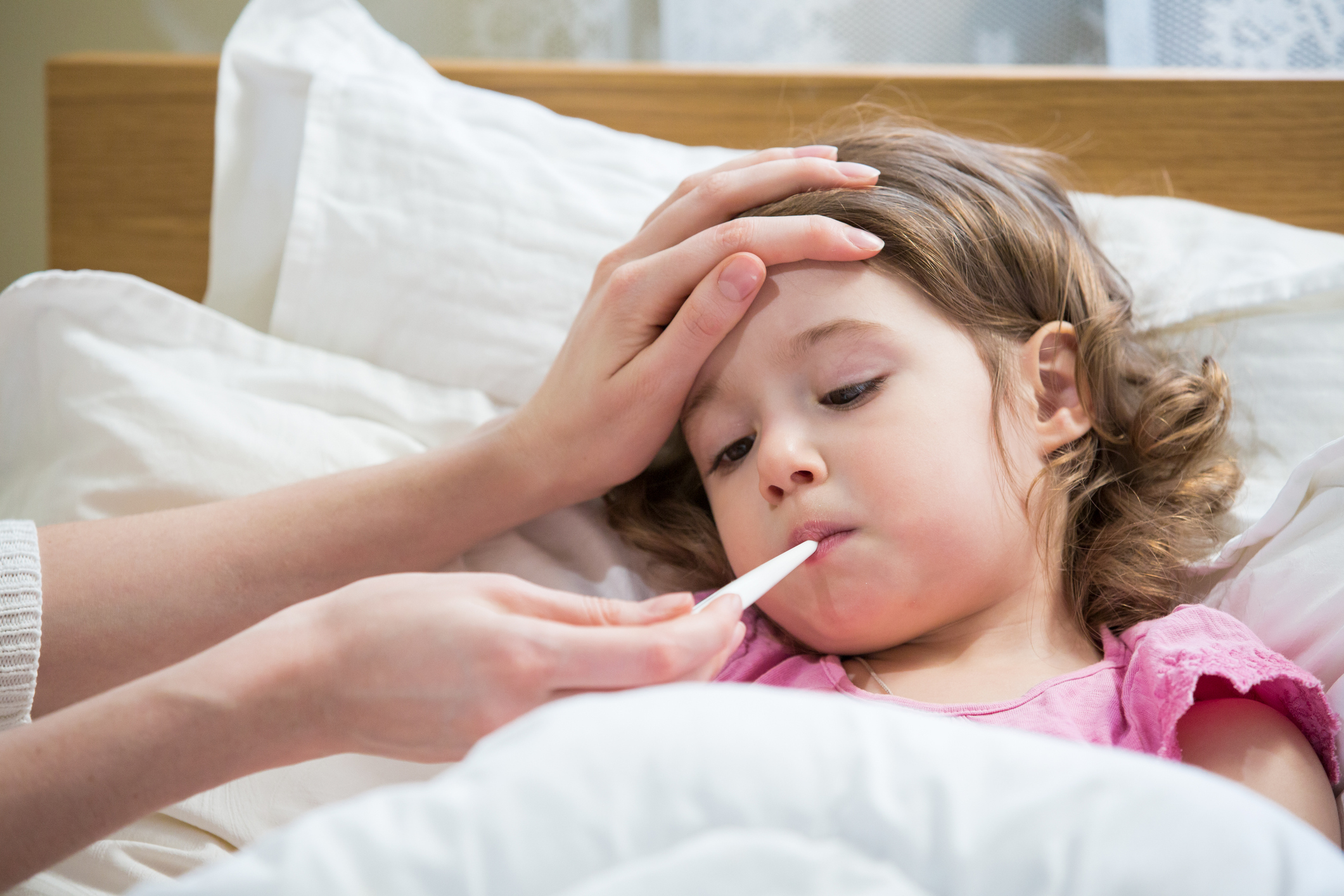(ALLTHEMOMS.com) - When should children with fever be taken to the doctor?
Fever is a common symptom that is seen throughout childhood. Most fevers are associated with a viral illness that will resolve on its own, and the majority of these can be managed at home.
Don't let them get dehydrated
There are many types of viruses.
Most common are the respiratory viral illnesses which are typically associated with runny nose, nasal congestion, and/or cough. It's common to have fever during the first couple days of illness.
The main focus during a viral illness is to make sure your child has appropriate fluid intake and is comfortable. If they get dehydrated, then they will feel worse than they do already.
Pain and fever reducing medications such as acetaminophen or ibuprofen may be helpful. If your child looks much improved after these medications, then that is a very good sign that they do not have a serious illness.
That being said, it is not necessary to suppress the fever at all times.
Fever is the body's natural response to fighting infection, so it in fact may have beneficial effects.
About antibiotics…
Viruses typically resolve on their own, and there is no curative treatment.
That is different from bacterial infections which require antibiotics. We want to reserve antibiotics for only children who have true bacterial infection because there can be negative consequences if they are given unnecessarily.
For example, antibiotics can change the normal bacteria which are helpful to your body. If there is a concern that your child may have a bacterial infection, then they should be evaluated by a doctor.
You should take them to the doctor when there is concern for a serious illness or if they may need further evaluation or treatment.
Check this list first
Here are some circumstances that would warrant bringing your child with fever to the doctor:
1. Under 3 months: Babies have less mature immune systems and fever may be the only sign of serious illness. You should bring them in for any temperature:
> 100.4°F or 38°C
Any fever > 104°F or 40°C
2. Fever for more than 3 consecutive days
3. Severe sore throat. Of note, many kids with viruses get sore throat, but patients with strep throat (caused by a bacteria) typically have the severe sore throat without the cough and nasal congestion
4. Fever and pain when urinating. This may be a sign of urinary tract infection.
5. Signs of dehydration such as dry mouth, not urinating as much, not taking fluids.
Emergency room time
You should consider going directly to an emergency room with the following:
- Looks ill, unusually drowsy, or lethargic (and still acting sick after fever reducing medicines)
- Severe pain of any kind that does not respond to pain medications
- Babies who are inconsolable
- Difficulty breathing or working hard to breath
- Difficulty swallowing or drooling
- Stiff neck and severe pain
- Rash with purple patches or tiny red spots on the skin
- Seizure
This post was written by guest contributor David Brodkin, M.D. Pediatric Hospitalist, Maricopa Integrated Health System.


